USA tops tough Senegal in FIBA World Cup opener, 87-67
SANTA CRUZ DE TENERIFE, SPAIN – Defending Olympic and World Champion Team USA kicked off its quest for an unprecedented third consecutive and tenth overall World Cup gold medal with an 87-67 win over Senegal in the opening game of Saturday night’s evening session at Quico Cabrerra Arena in Santa Cruz de Tenerife.
Coach Dawn Staley went with a lineup of veterans to start the game, as four-time Olympic and three-time World Championship gold medalist Sue Bird and four-time Olympic and two-time World Championship Diana Taurasi, the 2009 WNBA MVP, took the floor for the opening tip alongside 2012 WNBA MVP Tina Charles, who owns two gold medals apiece from the Olympics and World Championships, and newly minted WNBA MVP whose hardware cabinet boasts an Olympic and a World Cup gold. Nneka Ogwumike, the 2016 WNBA MVP who owns a gold medal from the 2014 World Championship, rounded out the starting five.
All the accolades did not seem to rattle Senegal, however, as the AfroBasket runners up darted out to an early 10-2 lead, and then, even after the Americans found their footing, held on to the advantage throughout much of the first quarter, until a Tina Charles layup knotted the score at 12 apiece with two-and-a-half minutes to go. From there, Senegal kept it close, finishing the opening period down by a single point, 18-17, after Elena Delle Donne, 2015’s WNBA MVP and a 2016 Olympic gold medalist, took an assist from senior team newcomer Kelsey Plum drained a three-pointer with four seconds to go in the period.
The game remained close as the second stanza got underway, but the Americans began to pull away midway through the period, taking a 32-25 edge at the 4:31 mark as Charles unselfishly fed Stewart down low to follow up a Taurasi three-pointer. Minutes later, Bird proved she still has the scoring touch, knocking down a three-pointer to swell the lead to 10, 37-27. The Americans finished the quarter on a 20-6 run and were not to be stopped for the balance of the game.
The U.S. took a 45-31 lead into the locker room behind a balanced scoring effort that saw every American player who took the floor knock down at least one shot. Neither Layshia Clarendon nor Britney Griner saw action in the opening half; though Clarendon would ultimately get some minutes late in game, but Griner has suffered a moderate ankle injury and is considered day-to-day according to USA Basketball spokeswoman Caroline Williams.
For Senegal the situation was much the same – i.e., all those on its roster who played, save Aicha Sidibe, who saw less than a minute of playing time in the opening half – were able to find the bottom of the net. But while U.S. shooting improved markedly as the game progressed, with the Americans bettering their 38 percent (6-16) field-goal shooting in the first period to 57.9 percent (11-19) in the second quarter, Senegal’s shooting faltered. The Africans dropped from 39 percent (7-18) field-goal shooting in the opening frame to just 35 percent (7-20) in the second quarter.
Perhaps as significantly, Team USA moved the ball more effectively as the game progressed, tallying 16 assists on their 17 makes from the field in the first half, a remarkable feat for a team that has seen very little playing time as a unit. In contrast, only five of the Senegalese baskets came off assists. Moreover, the U.S., who coughed up the ball four times in the first period, gave it away only twice more in the second, while Senegal, tallied just four turnovers in the opening quarter and added six more miscues in the second. By game’s end, Team USA had racked up a remarkable 28 assists on its 36 made baskets, with Taurasi, who struggled all night to find her shot, passing out a game-high seven dimes.
Staley categorized the impressive assist-to-baskets ratio as a hallmark of USA Basketball. “Everybody just wants to win,” she said. “It’s probably the most selfless basketball that you will ever see. It is a collection of players who, they want to make everybody look good,” later adding that there were several situations in which she thought her players might have been too unselfish, over-passing the ball and missing some scoring opportunities.
Likewise, while turnovers have often been the downside of the U.S. reliance on a team of All Stars who have very little time to practice together as a team – Staley noted that her team has played more games than they have held practices, essentially playing their way into their rhythm – the Americans coughed the ball up only six times in the opening half and gave it away only 15 times in the game as a whole, as compared to 20 miscues for Senegal.
On the whole, a quick pace favors the Americans, whose depth is perhaps its single greatest strength. Team USA loses little, and at times even benefits, when it turns to its bench, while many other teams must rely on a handful of talented starters to remain in the game the entire way. In this case, however, the uptempo style of play might have taken a bit of a toll midway through the third quarter as American scoring stagnated and turnovers and personal fouls rose. With just under three minutes to go in the quarter, Senegal was winning the period, outscoring the United States 14-12 for the frame. But the hole dug in the opening half proved too deep for Senegal to overcome, and Staley was able to put fresh legs on the floor to quickly regain the momentum. One of the highlights of the quarter was a Kelsey Plum dish to A’ja Wilson as the two senior team novices combined for a fast-break layup in the final two minutes of the quarter. Less than a minute later, Ogwumike took it coast-to-coast in another one for the highlight reels. In the end, Team USA won the frame, 20-17, to finish the third quarter on top, 65-48. From there it was all downhill glide to the finish line.
Senegal did not quit, however, mounting a 5-0 mini-run roughly four minutes into the final frame, as Mame Marie Sy-Diop stripped Plum, and Oumoul Khairy Sarr dished to Oumoul Khairy Thiam for a lay-up to follow up on Sarr’s three-pointer moments earlier. Plum promptly redeemed herself, sprinting down court to tip the ball out of bounds and prevent another fast-break layup for Senegal. Though things looked a little rough in the final minutes as Staley emptied the American bench, allowing Senegal to trim the American lead from its high of 26 points at the 3:35 mark of the final quarter, Staley was proud of the way her team’s newcomers performed, noting that when “you are surrounded by this level of greatness,” it brings out the best in younger players.
Speaking of Wilson, Staley’s protégé at the University of South Carolina, the coach remarked that “Wilson is surrounded by some great players. She has got people that she can look left and right and front and back to see who have been very successful at this level. And, I think she is playing off of playing with some of the best people in the world. So you can’t really look bad when you are surrounded with so much greatness.”
The same principle applies to the solid performance of all the team’s newcomers, Staley added. “Again, anytime that you play with the likes of Elena [Delle Donne], sitting next to me, as well as Sue Bird, Diana Taurasi, they are going to raise the level of play. They are going to prep you for anything that you may see out there on the floor. And when all of them came in, they made an impact on the game, all of the newbies.”
Wilson echoed much the same sentiment as her coach. This season’s WNBA Rookie of the Year marked her senior national team debut in international competition with 15 points on five-of-nine (56 percent) field-goal shooting, and though silent on the boards, dished out two assists while grabbing two steals. The young star was positively beaming after the game as she described how great it felt to get her first official game on the senior team under her belt.
“It felt great, just embracing my role and the players that I am around, some of the greats of the game. I’m just taking it all in. I had a lot of fun, and I’m just taking it step by step, game by game.”
Joining Wilson in double figures, was Delle Donne, who led all scorers with 19 points, while hauling down a team-high (tied) six rebounds, swatting away two blocked shots, and tacking on an assist and a steal. Breanna Stewart also grabbed six boards to go with 14, two blocks, two assists and a steal, and Nneka Ogwumike, who was perfect from both the floor and the charity stripe to finish with 16 points, as well as four rebounds, an assist and a steal. Staley explained that she looked at the stat sheet at half-time and was surprised to see that Ogwumike had seen just a little more than five minutes of action. She made a conscious effort to get the Sparks power forward more playing time in the latter half of the game, and was impressed with her contributions at both ends of the floor, keeping her on the court for an uncustomary entire quarter.
Both Staley and Delle Donne praised the efforts and resilience of Senegal, of which head coach Cheikh Sarr was also justifiably proud. After congratulating the Americans on their win, he also heaped praise on his own team for their strong start, their discipline in executing their game plan, and their resiliency, especially in the third quarter when they matched the U.S. nearly stroke for stroke.
Oumoul Khairy Sarr (no family relation, according to the coach) posted a team-high 18 points on 54 percent (7/13) field-goal shooting, including two-of-two from long range. She also pulled down four rebounds, passed out three assists and grabbed three steals. Power forward Astou Traore added 13 points and four rebounds, while Mame Marie Sy-Diop led all players in rebounding, with eight boards, to go with nine points, two assists, and two steals, but seven turnovers.
Two factors dictated the game’s outcome, according to the Senegalese coach, and starting guard Oumoul Khairy Thiam: First, foul trouble for Senegal’s “bigs” forced the Africans to switch to a two-three zone in the second period, and the U.S. took maximum advantage of the change in tactics to score virtually at will. Second, the height and depth of the U.S. team made it difficult for Senegal to maintain the pace for the full 40 minutes.
The edge in height was not as significant in this particular match-up as it is with some of the other teams in the tournament. The Senegalese team stands six feet on average, while the Americans average out at six-feet, one-inch. But the advantage shows itself primarily in the front court, where, even with the 6-8 Griner sidelined, the Americans can field the 6-5 Delle Donne, alongside Charles, Stewart and Wilson, who each stands 6-4. That advantage is so pronounced that Ogwumike laughed when asked to comment on her team’s formidable front court, “You’ll have to ask the other teams” what it’s like to face that powerhouse frontcourt, she said, then added, “But I guess so …. I mean, I’m the smallest one out there.” Ogwumike checks in at 6-1, and inch shorter than “small forward” Morgan Tuck, but makes the most of every inch of it.
The Senegalese roster, in contrast, boasts 6-6 center Maimouna Diara and 6-4 Aminata Fall. But Fall did not play at all, while Diara saw less than 10 minutes on the night. That left the 6-2 Sy-Diop to hold down the middle against the American bigs. But there is nothing small about the heart of the Senegalese team, who came atypically close to matching the Americans on the backboards, yielding just a four-board, 38-34, differential.
Still, Sarr noted, as did Staley, the steady improvement in the quality of African women’s basketball, where Senegal is one of the continent’s most decorated teams, having taken the gold in 13 African championships. Senegal’s young women find opportunities to play in school; indeed, basketball is a means of keeping them in school, he explained. And some of his players, including Thiam who, he said, is expected to play next year in Oklahoma, are finding opportunities to play in the United States and in Europe, then returning to their homeland to bring that experience at high levels of play with them.
Staley, who scouted Senegal at the 2016 Olympic Games in Rio de Janiero also noted the team’s improvement under its new coaching staff. “Africa – and the rest of the world – are getting better.” She noted that Nigeria had given Australia a solid challenge on the opposite side of the bracket, though the Opals ultimately hammered home an 86-64 win behind a 34-point outburst from Liz Cambage, though the Opals.
The U.S. expects its opponents to bring their A games when they take the floor against them, said Wilson. “I feel like, being the USA, we are going to get everyone’s A game, constantly. So we have to be ready.”
That’s why Staley and her charges, two of whom – Bird and Taurasi — have tasted the bitterness of defeat at the 2006 Worlds in Brazil – are leaving nothing to chance as they undertake their defense of the world title. They might still be “a work in progress,” as Staley put it, but they are “playing and practicing and prepping all at the same time,” with the expectation that the competition will only get tougher as the tournament moves forward.
Up Next for the Americans: Team USA faces China at 6 p.m. Sunday. The U.S. defeated China, 83-46, in an exhibition match on April 26 at Key Arena in Seattle.
Day One’s Other Results:
Belgium 86, Puerto Rico 36. Belgium marked its World Cup debut with an 86-36 win over a mismatched Puerto Rico. Emma Meesseman posted 16 points, grabbed 14 rebounds, and handed out five assists for the Cats, while Kyara Linskens added 15 points, five rebounds and four assists.
Jennifer Victoria O’Neill was the only Puerto Rican player to finish in double figures, posting 12 points and five rebounds.
On the Opposite Side of the Bracket
Canada 81, Greece 50. The Canadians got off to a sound start with an 81-50 thumping of the team from Greece. Four Canadians surpassed the double-digit scoring barrier, led by veteran Kim Gaucher who posted 16 points and five rebounds. Nirra Fields added 13 points, Kia Nurse contributed 12, and Nayo Raincock-Ekunwe tacked on 11.
Evanthia Maltsi led the way for Greece with 14 points, and Maria Emmanouela Fasoula came off the bench for 10.
Spain 84, Japan 71. The home team put away their opener with an 84-71 victory over Japan behind 15 points and four boards from Spanish veteran Marta Xargay. Cristina Ouvina, Laura Gil and Astou Ndour added 12 points each for the Spanish cause.
Japan’s Yuki Miyazawa also finished with 12 points to lead her team, getting support from Mika Fujikata and Monica Okoye with 11 points each, as well as Nako Motohashi and Maki Takada, who chipped in 10 apiece.



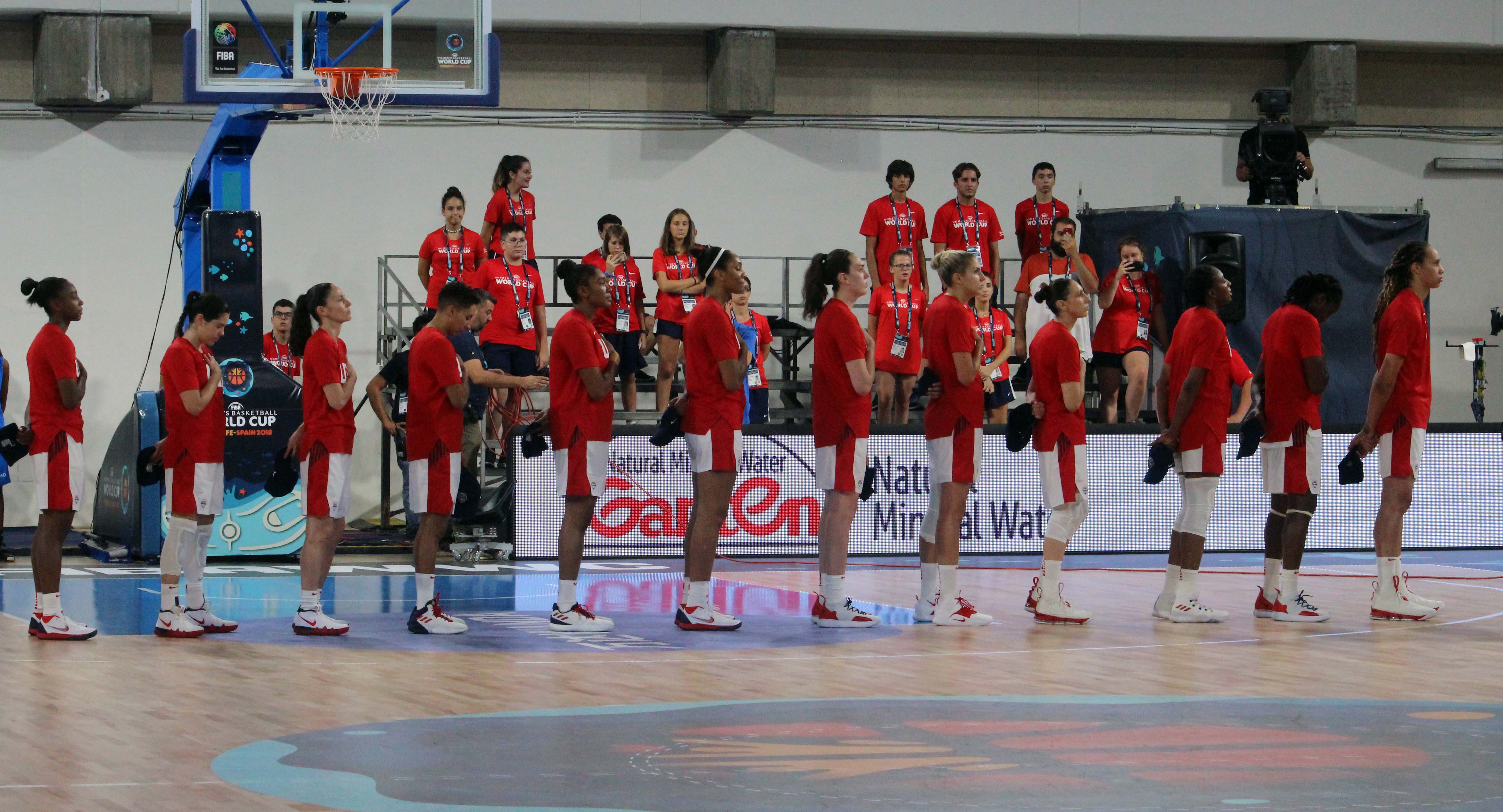
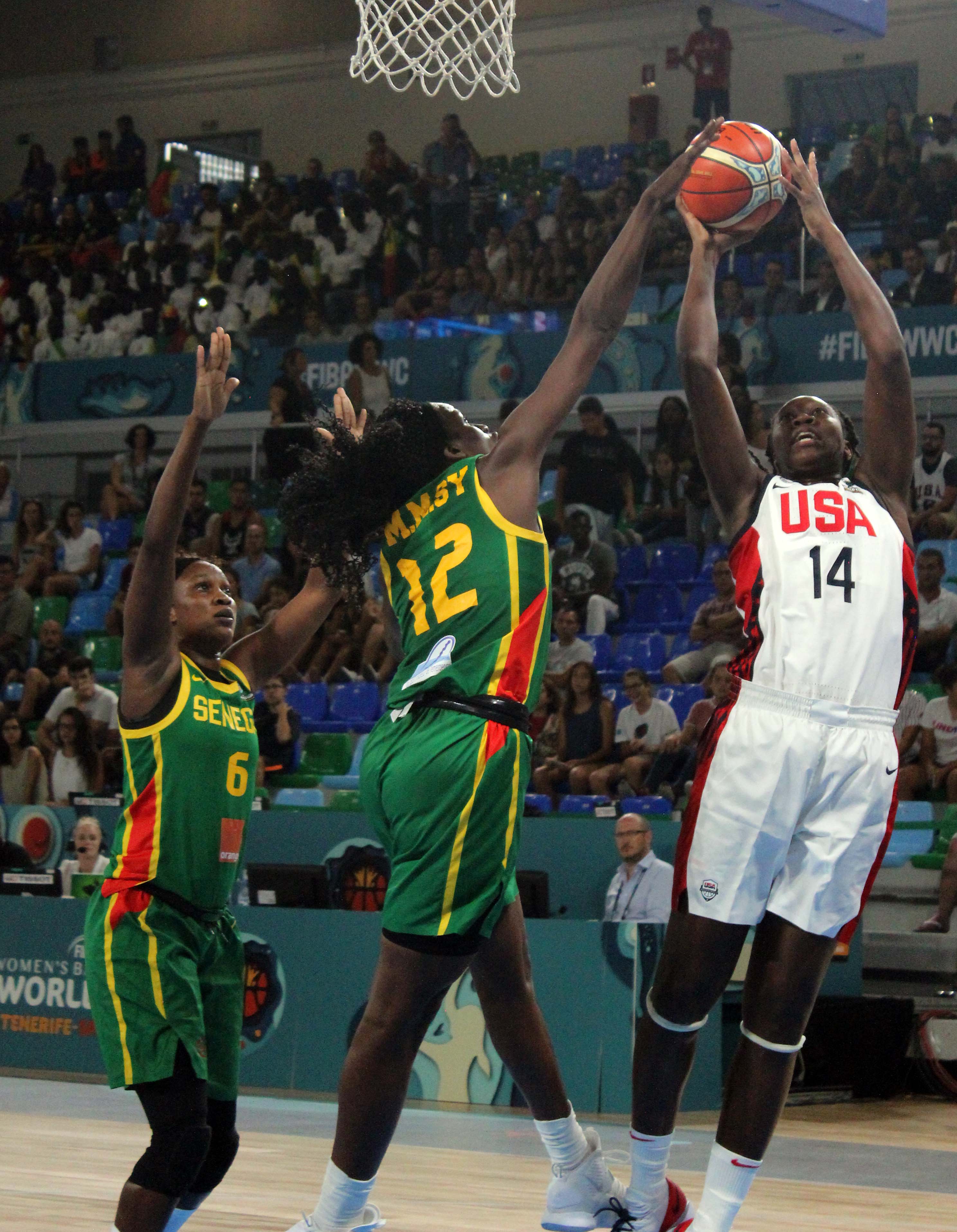
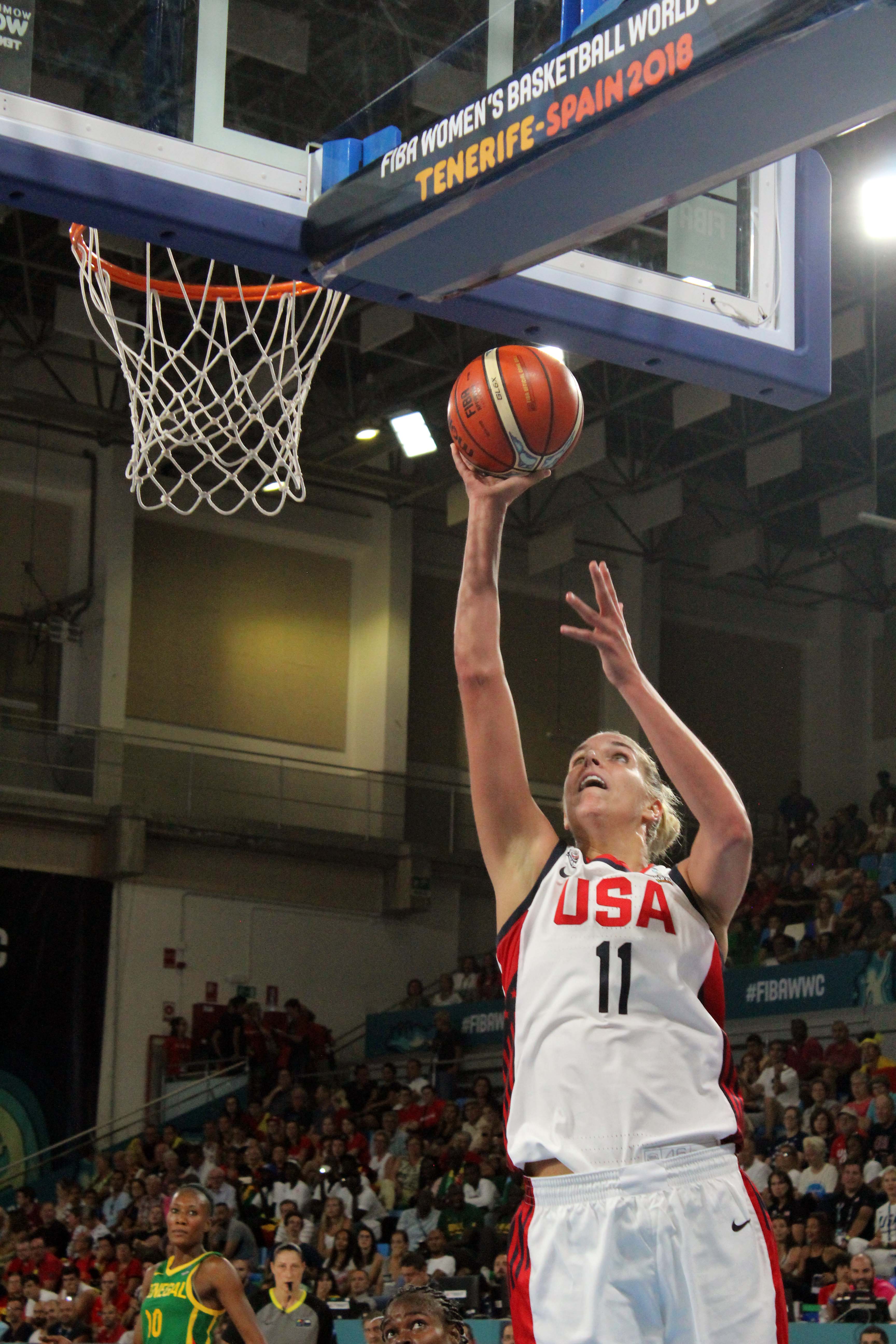
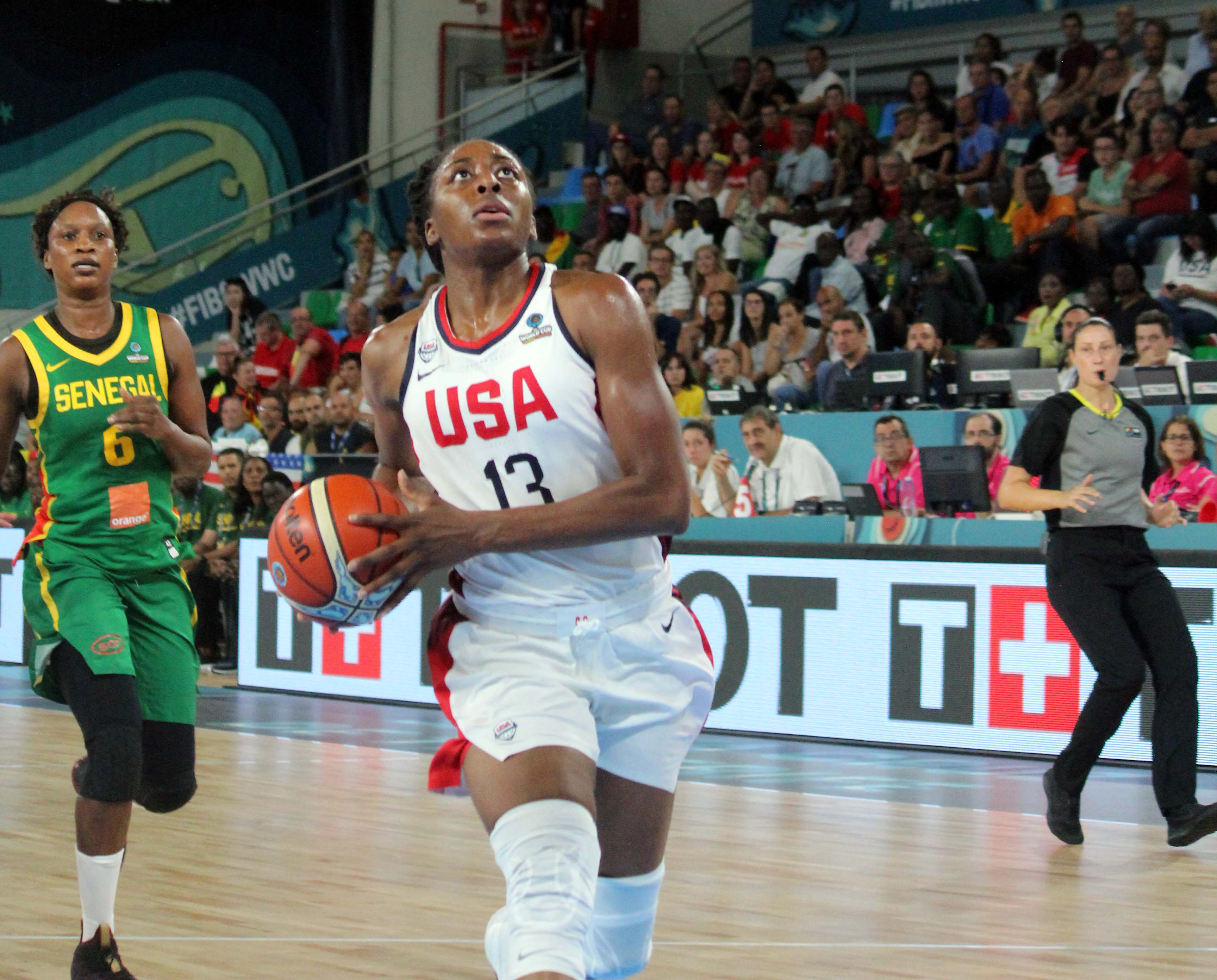
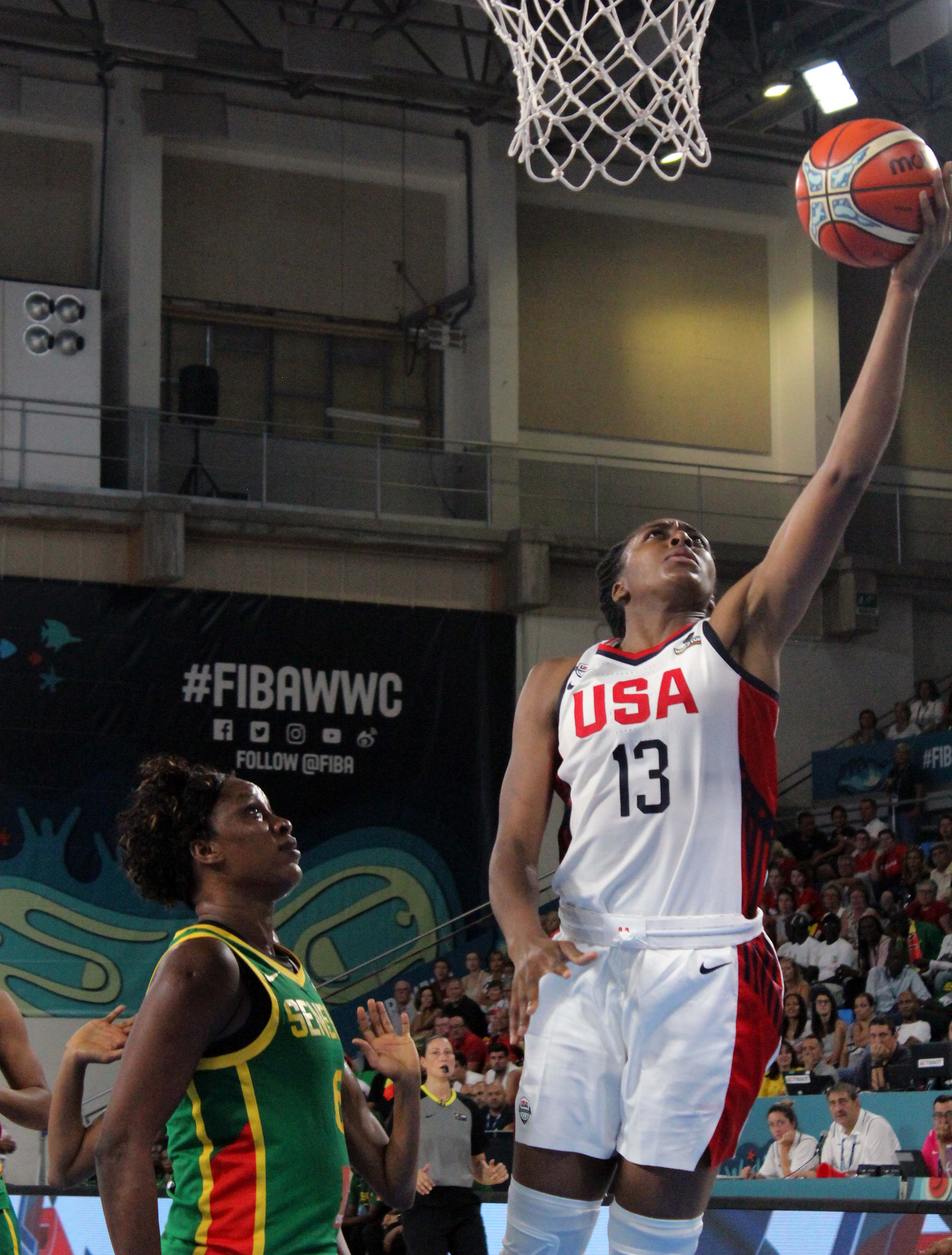
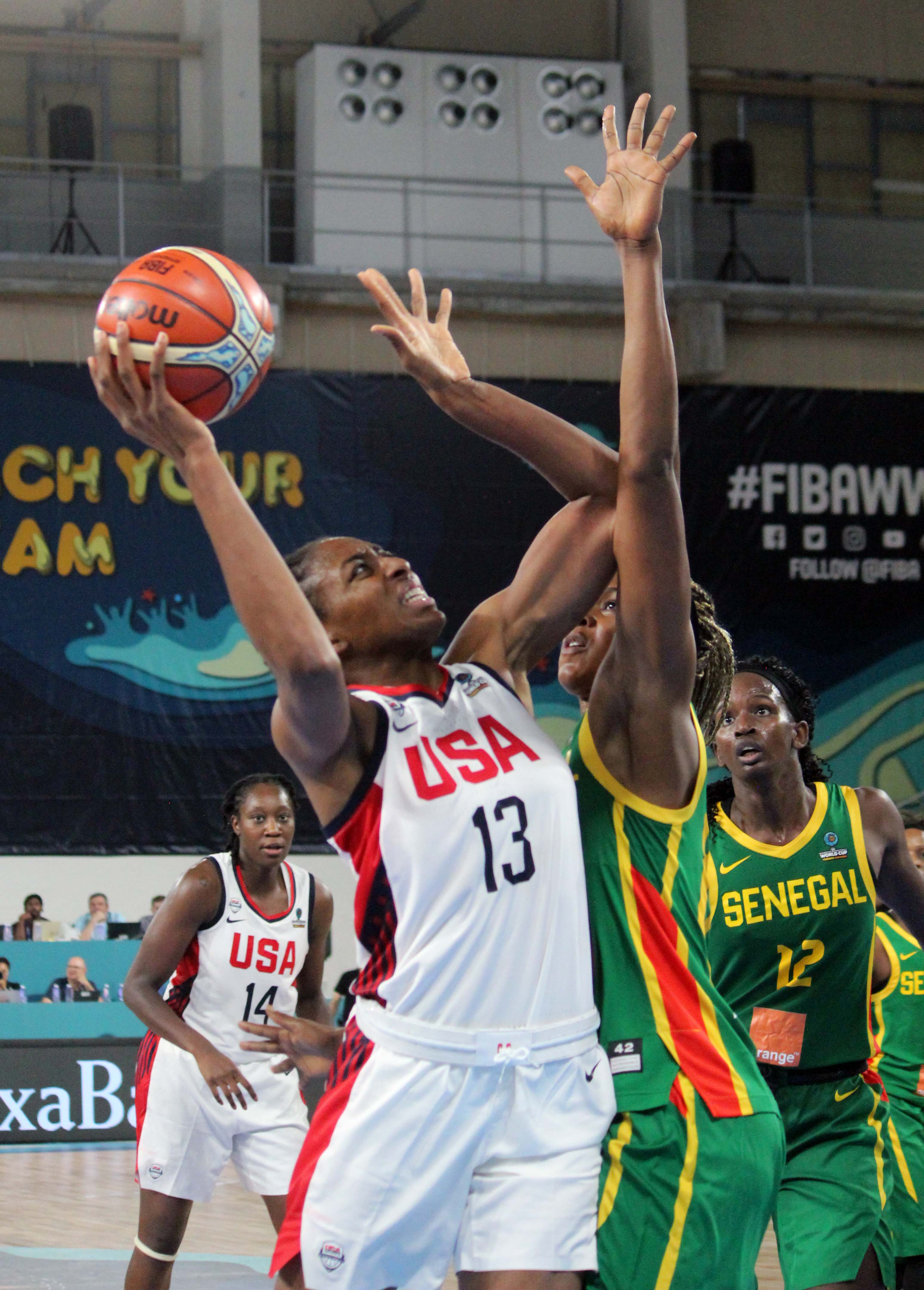
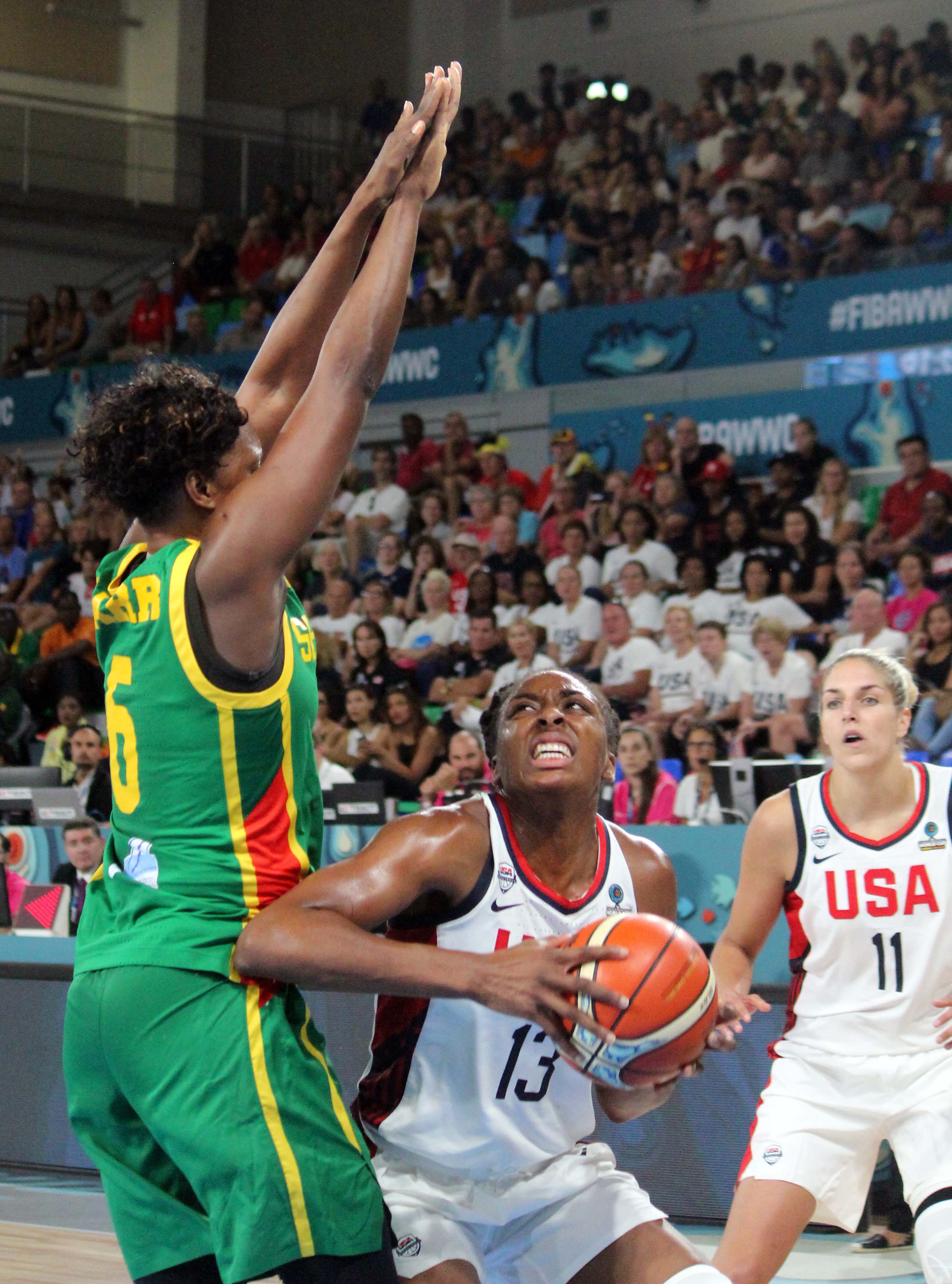
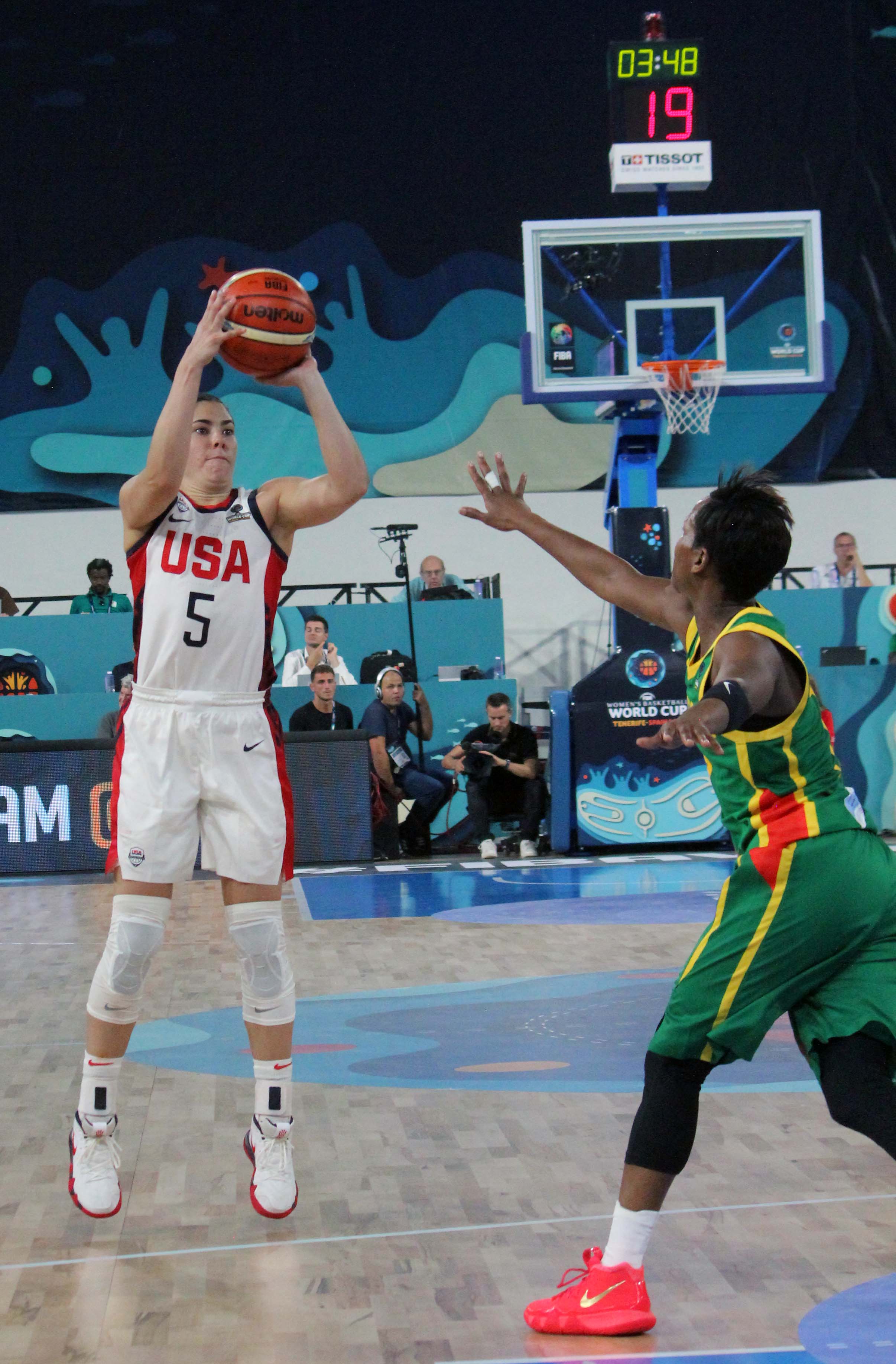
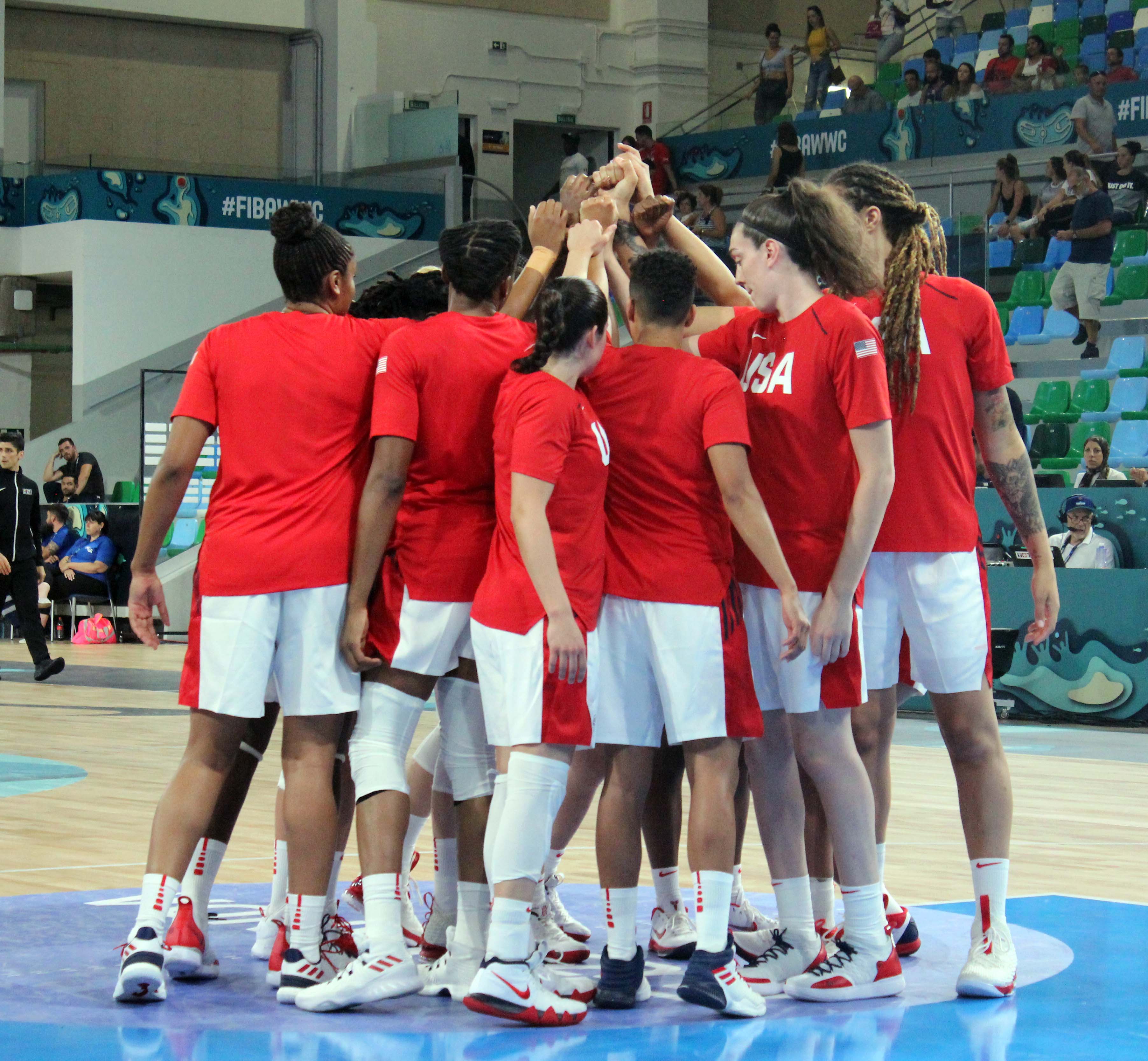
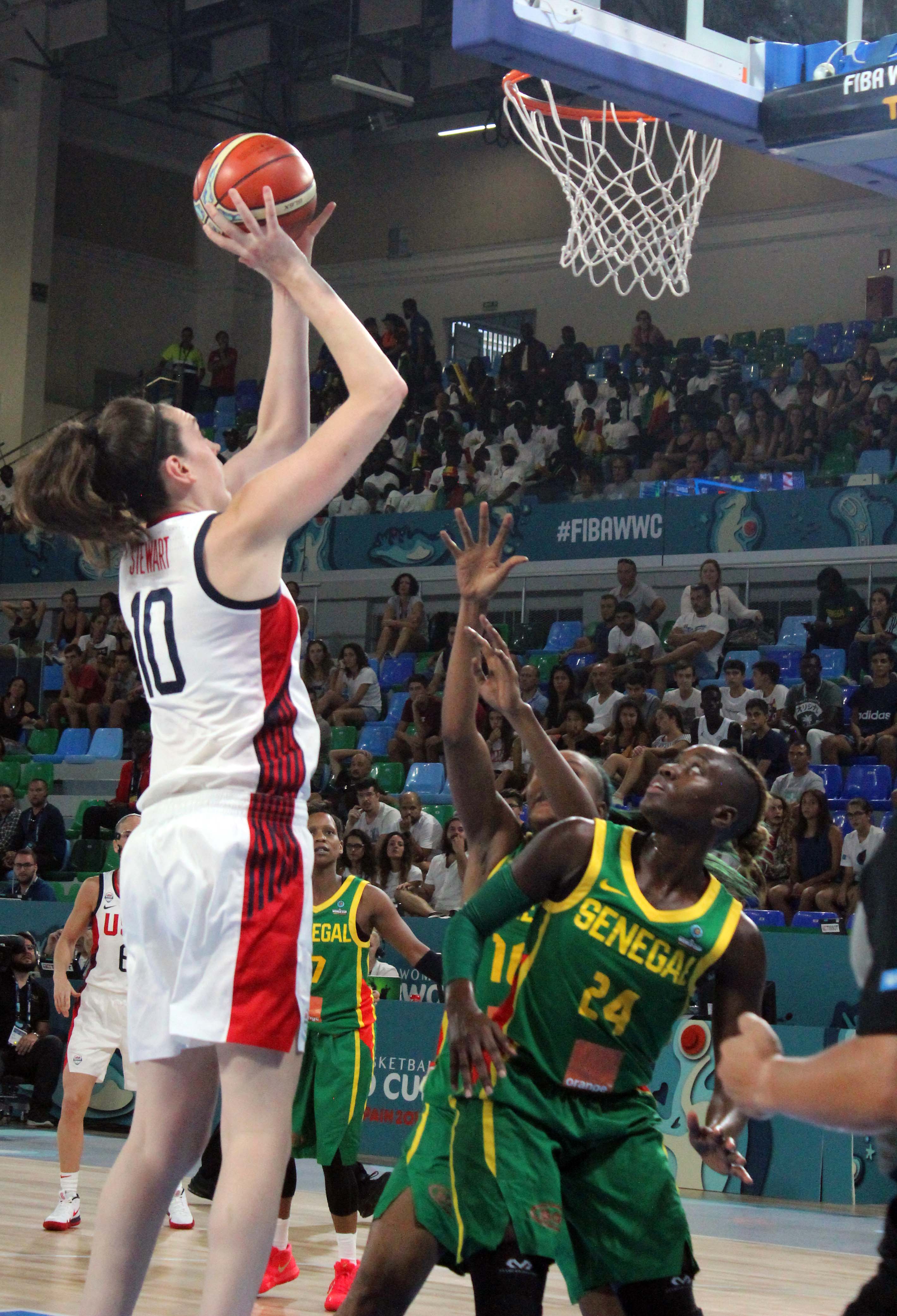
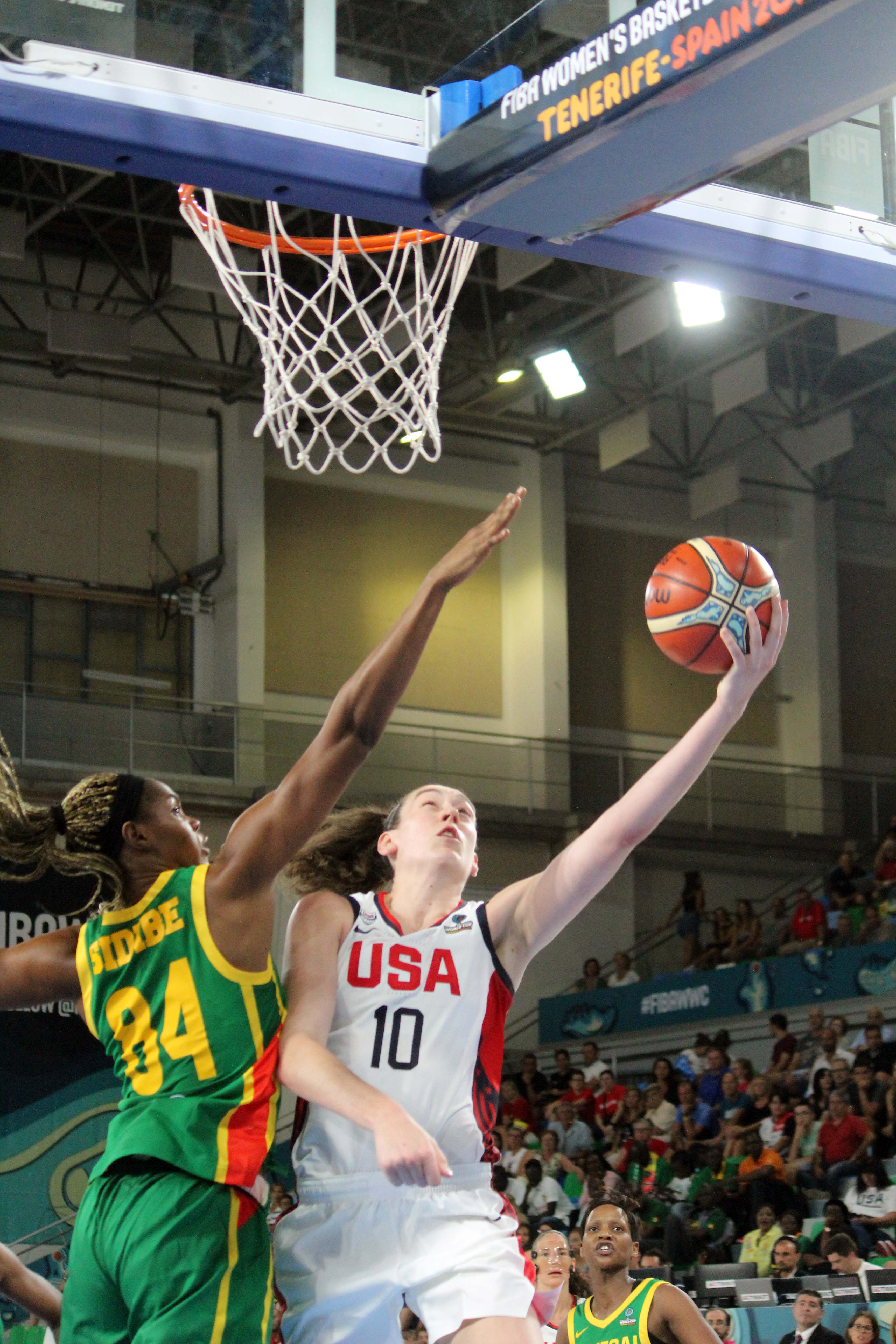
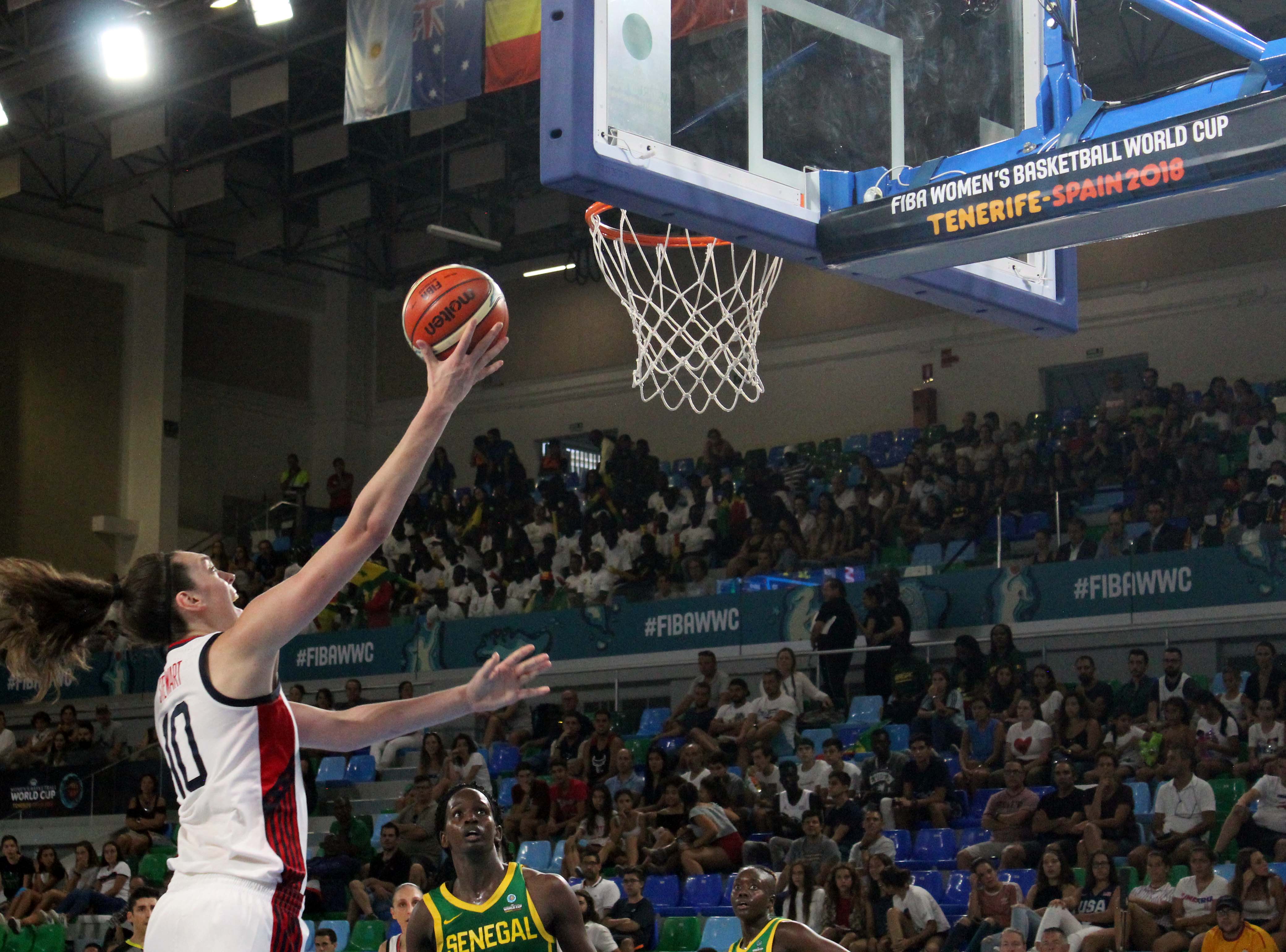
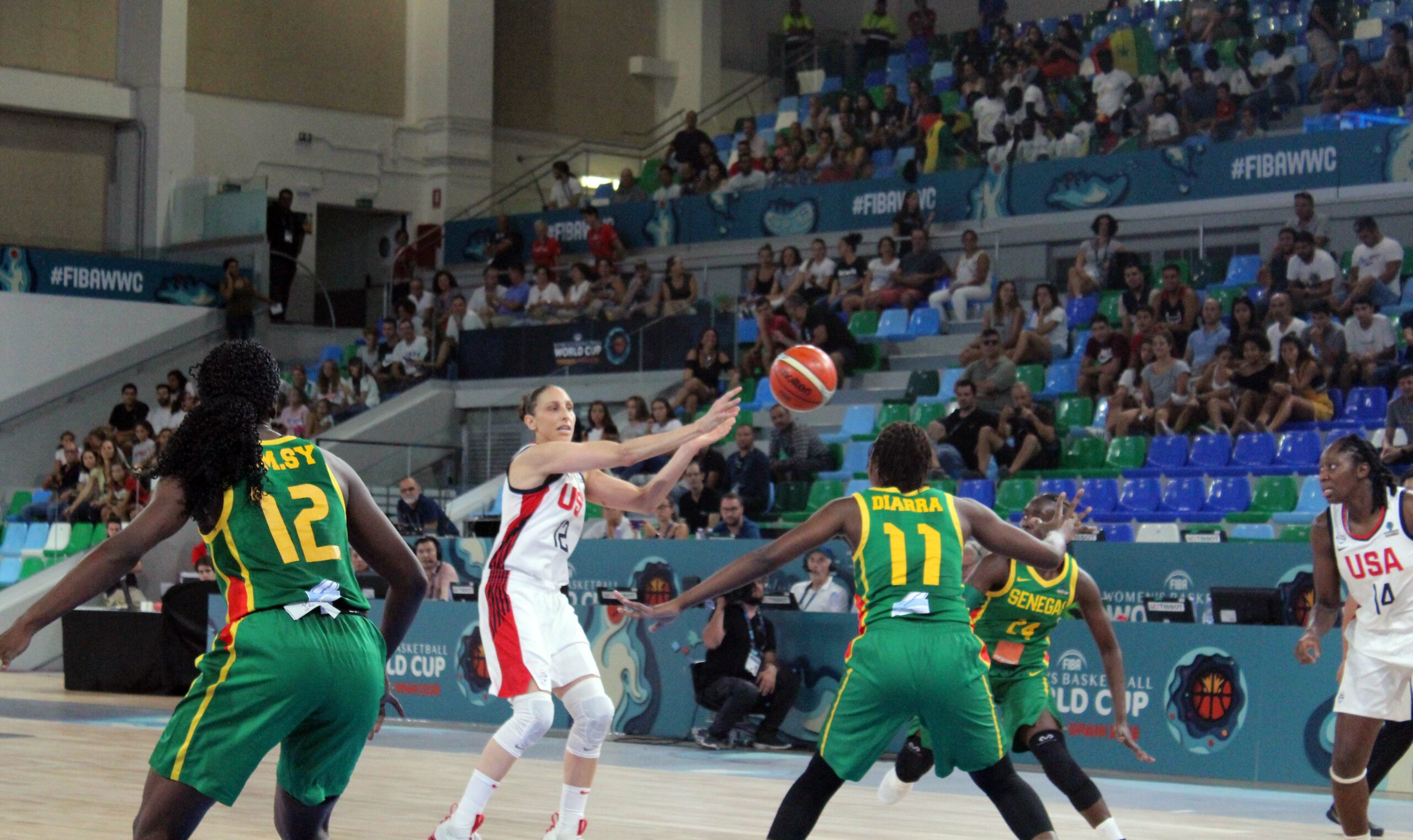
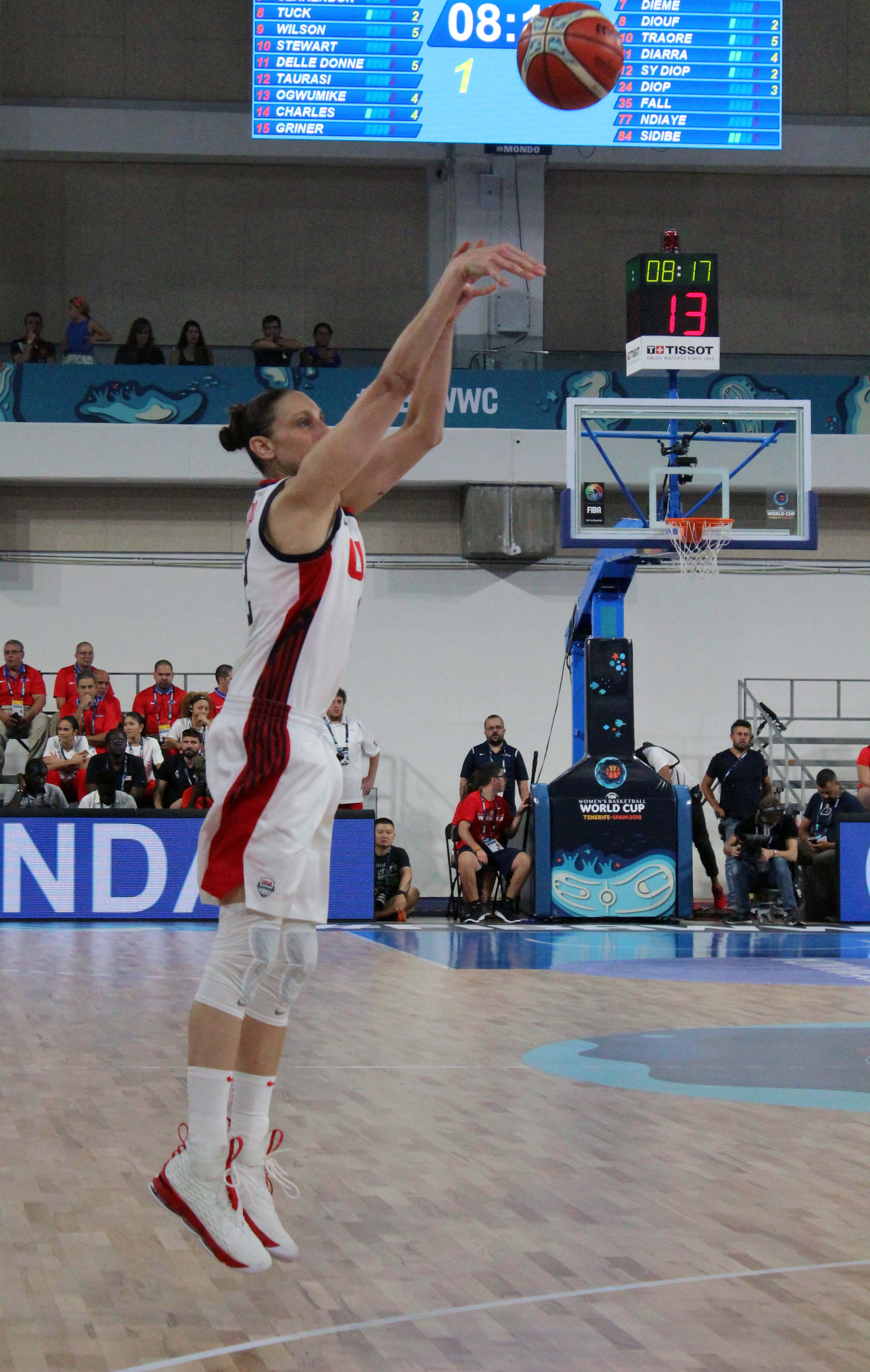
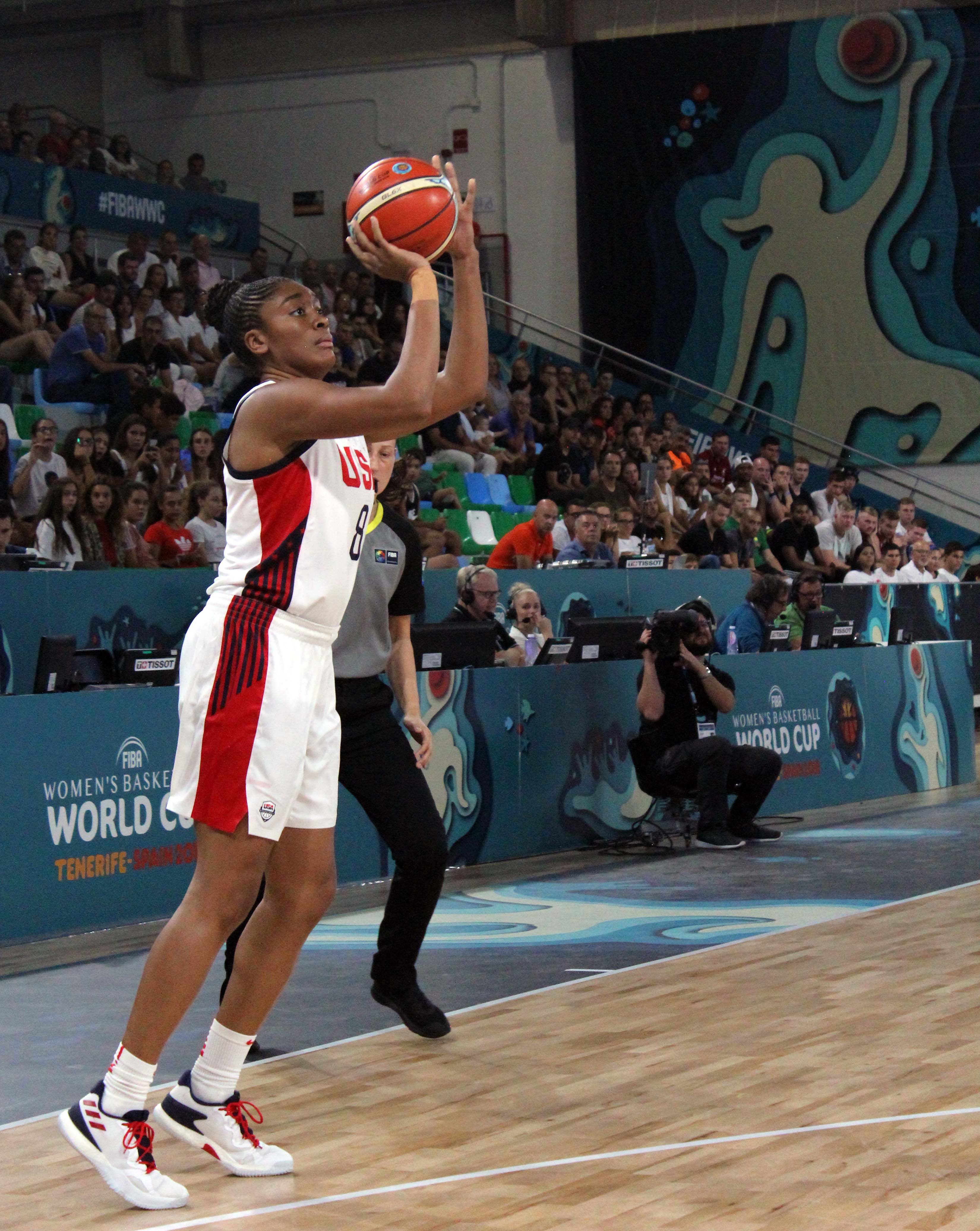

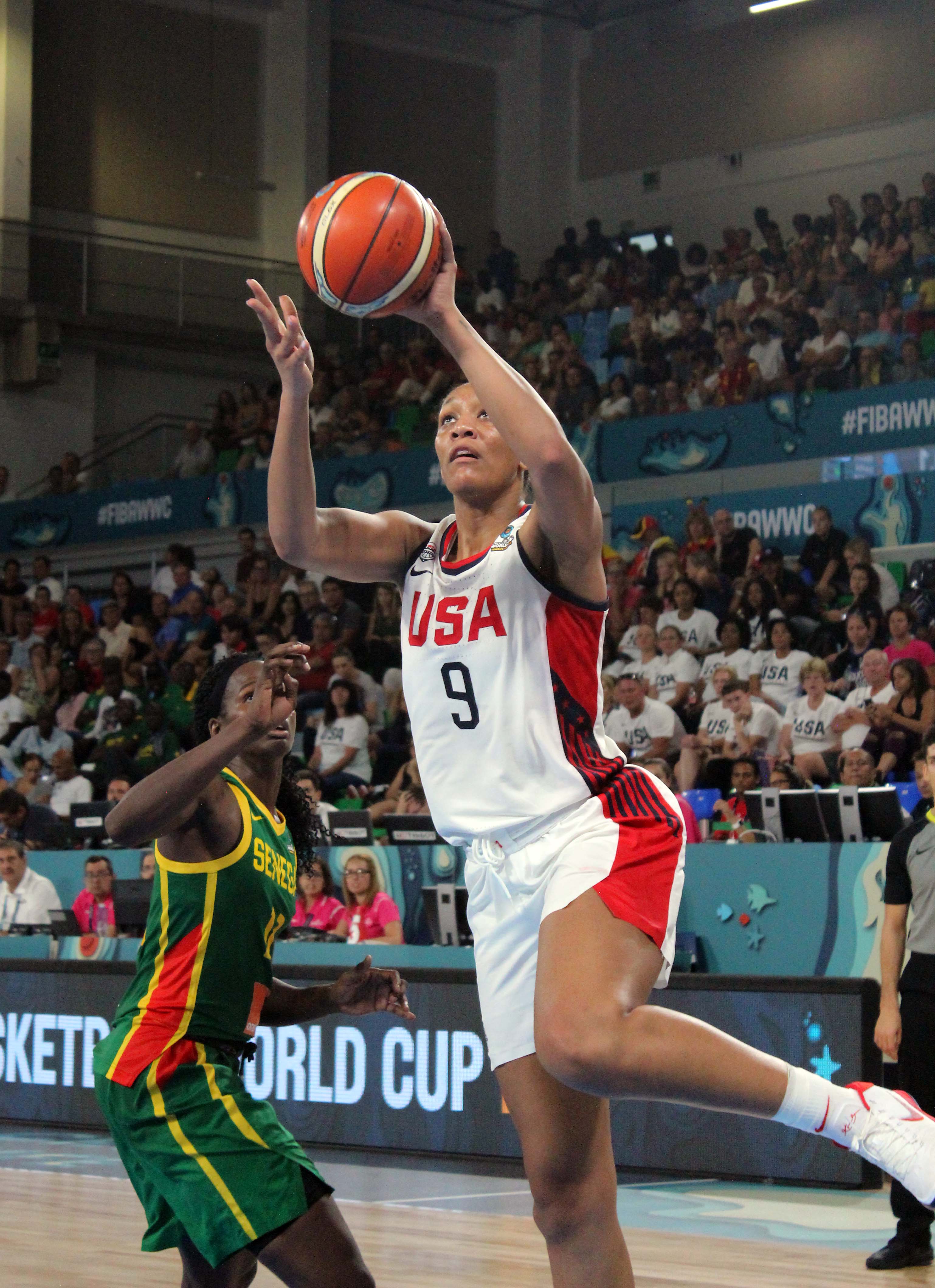
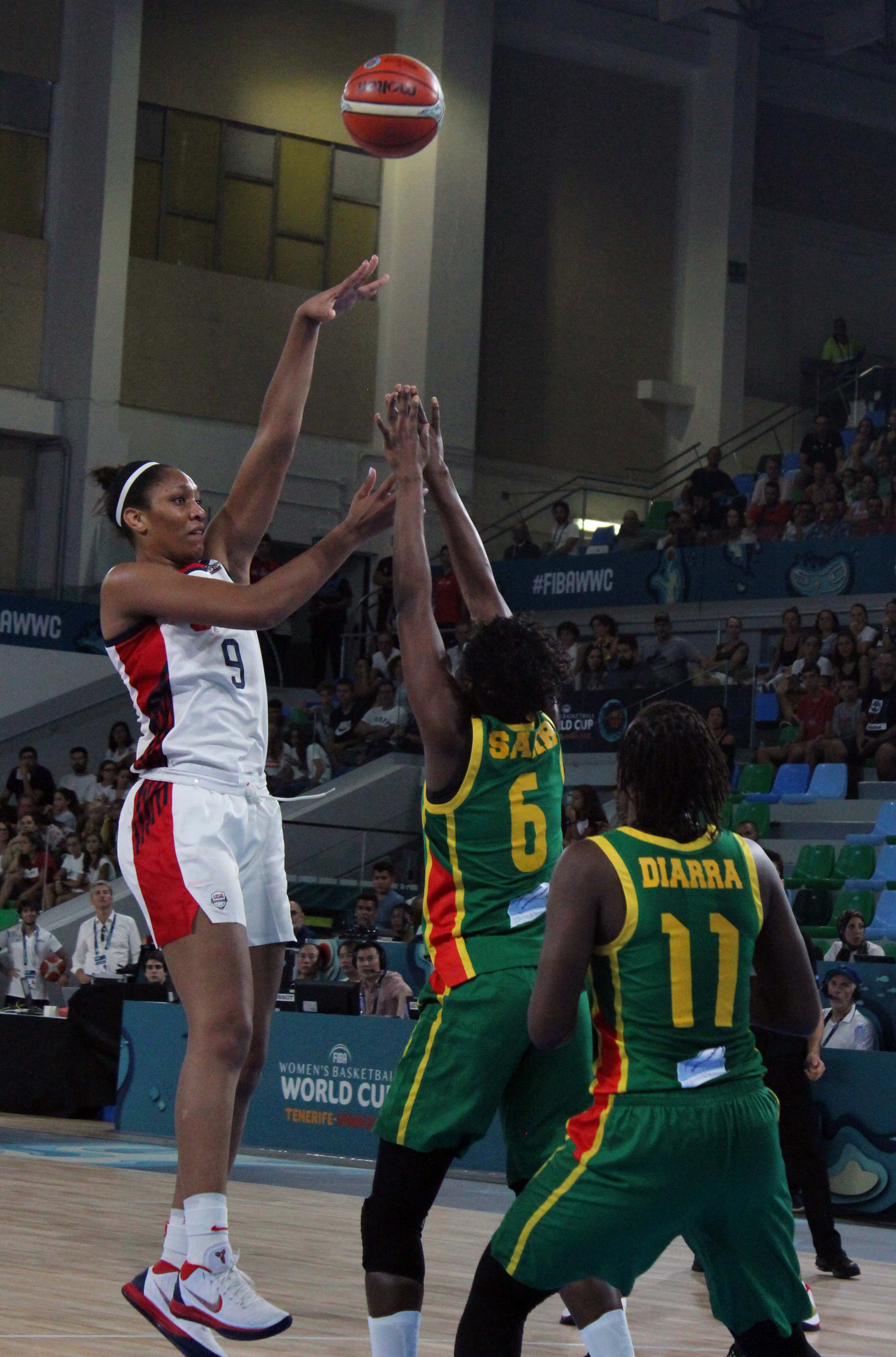
One Comment
[…] to @AmericanAir, who were 1-800-MissingInAction) did get to the island just after 11pm. Missed the US v. Senegal excitement, but was happy to have […]
Comments are closed.